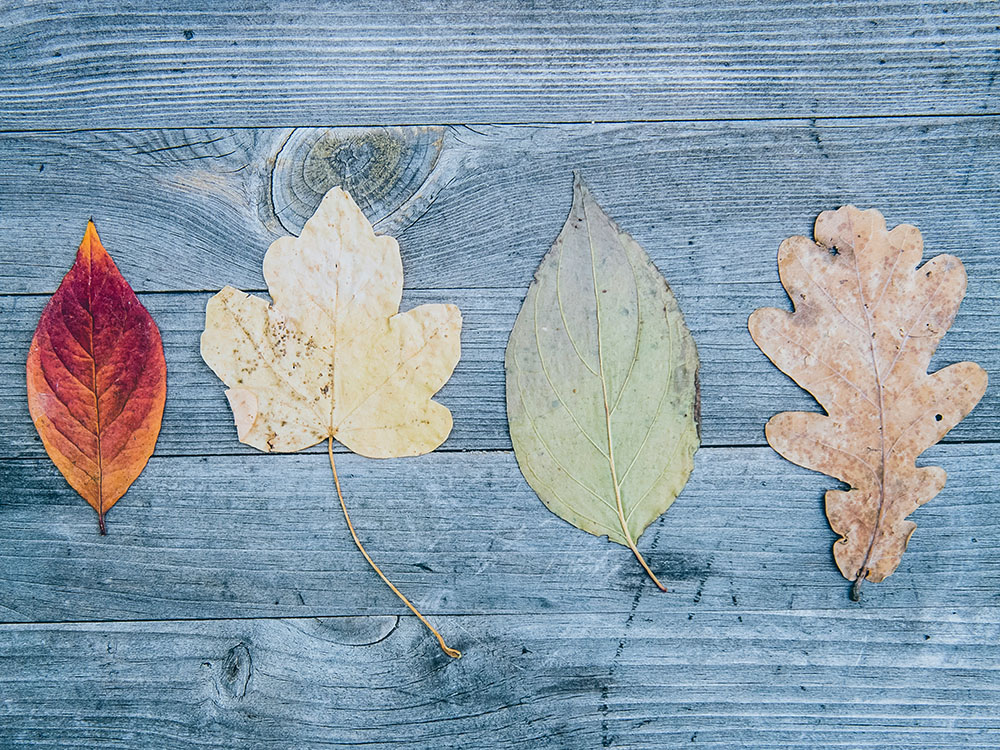
(Unsplash/Markus Spiske)
Religious life often leads us to encounters with diverse cultures and faith traditions. These experiences can profoundly challenge our long-held beliefs and sometimes become bridges across cultural and spiritual divides, enriching our journeys of faith.
This month, we asked our panelists: When have you engaged with people whose life experiences are vastly different from your own, and how did these interactions transform your long-held ideas about life?
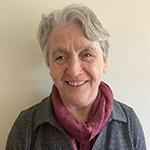
Ann Gray is from Scotland and has served as a lay missionary in Sierra Leone and as a Missionary Sister of St. Columban in Hong Kong, where she studied Cantonese and co-established Action for REACH OUT, an organization providing services to female sex workers on the streets and nightclubs of Hong Kong. After a short time in China studying Mandarin, she was elected congregational leader. Since completing her term in leadership, she has been in Ireland working on the development of congregational spirituality.
"Will I or will I not? Should I or should I not? If I am doing anything wrong, forgive me, Lord."
This was my prayer as I plunged in and joined the group in bowing and chanting the Buddhist sutras. I was in a very small Zen Buddhist temple, based in a tiny room in a high-rise block of apartments in one of the busiest and most overcrowded areas of Hong Kong, that tiny dot on the map that borders the vast expanse of China.
I was fulfilling a dream that had been with me for some time — entering into a journey of dialogue with a group of Buddhists. But these were very tentative steps I was taking, questioning all along the way: "How far can I go without compromising my own beliefs? Am I betraying my own faith and Christian tradition?"
I was aware of the treasured invitation being offered to me, a Catholic missionary sister, to learn from the ancient tradition of Buddhism and to share some of my own beliefs. At the same time, I was aware that in the course of this "venture," I would face the risk of having to change — and to change at a profound level.
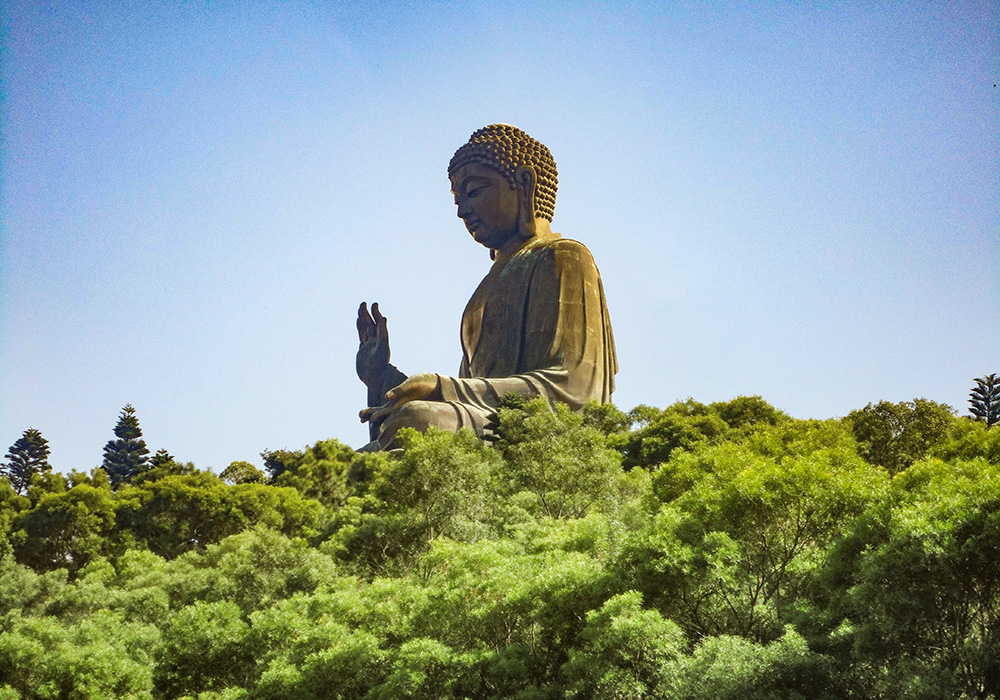
The Tian Tan Buddha statue on Lantau Island, Hong Kong (Ann Gray)
As I continued to sit meditating with my Buddhist friends, I found myself in a place of intense silence and depth where words and explanations were not needed. I also listened to and was inspired by stories of the Buddha and the great bodhisattvas. I was able to share about Jesus Christ and our saints who model for us the Christian way of life.
My Buddhist friends, particularly those who had formerly been brought up as Catholics, were surprised to learn of the rich tradition and practice of meditation and contemplation that we Christians also have.
In my initial contact with Buddhists, I had believed that I, as a Christian, and they, as Buddhists, were on two different but parallel paths of life and belief that eventually led to the same end. The more time I spent with them, the more I sensed that we are actually on the same path leading to the same end — we just use different words and images to try to experience or explain the profound and inexplicable.
The result of those early steps I took in Hong Kong has meant that, today, Buddhism has been integrated into my personal Christian spirituality as I continue in my search for the Ultimate in my life.
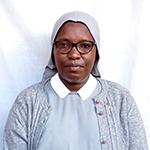
Beatrice Kamau is a Kenyan from the Congregation of the Daughters of St. Anne and is a regional superior for its Kenya delegation. She is a trained catechist, formator and a counselor. She has served as novices' formator and occasionally presents workshops to congregational leaders in Kenya, Uganda and Tanzania for the program Professional Development of Congregational Leaders, or PDCL. She also does part-time counseling.
We are products of our cultures and environments. Cultural experiences shape our worldview and the way we relate with people.
Growing up in Kenya, a country that is rich in diverse cultures, religious beliefs, sociopolitical stances and other realities, has made me appreciate the wealth that this diversity carries. But it didn't happen until I stepped out of my village, where I was brought up in a "monopoly" of cultures.
In 2012, I encountered a very different reality when I was assigned to Wajir County in northern Kenya, near the border with Somalia. Everything felt different — moving from a cool highland to a desert and from a predominantly Christian area to one where the majority were Muslims.
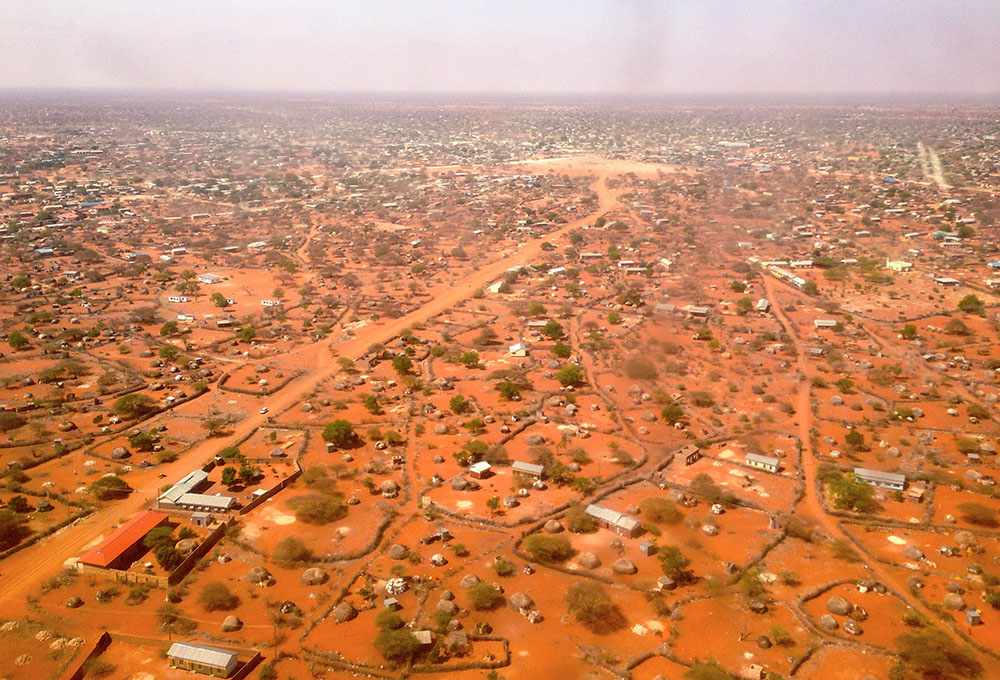
A view from a plane approaching Wajir town, capital of Wajir County, Kenya (Wikimedia Commons/Alex Maisuradze)
Like a "good Christian" and a follower of my belief system, I harbored prejudices shaped by my cultural background, historical context and personal experiences. I had the misguided, preconceived notion that my religion was better, and a strong assumption that the Muslims were hostile and unwelcoming.
This unconsciously created barriers to genuine dialogue. My lack of exposure to diverse perspectives and deeply ingrained biases within me contributed to this.
My firsthand experience was that the community always invited us to join them in various celebrations of life, be it in joy and in sadness. In moments of joy like weddings, dowries, graduations and religious feasts, one could experience the generosity and openness of the community. This was unmatched! In moments of sadness like funerals, bonds were created that cannot be forgotten because of the value of our personal presence.
Experiencing how funerals were conducted led me to question our practices back home. In my context, funerals are often very expensive and take lots of time, causing emotional and financial burdens. In Wajir, whether for religious or cultural reasons, burials are simple and fast. This led me to reconsider what is truly essential in this world.
True dialogue occurs when life is shared in both joys and sorrows, allowing us to see and appreciate the beauty and the goodness of the other without prejudice.
Though the community was not well-off, they cared for our needs as religious and members of their community. They supplied us with groceries, goats, and other necessities. One shopkeeper, the kindest man in town, allowed his customers to take goods on credit until they could pay.
My understanding of Islam was previously theoretical and influenced by media, which often portrayed the Islamic world negatively. However, my experience in Wajir shifted my perspective. I learned that the best dialogue with those different from us comes through personal encounters.
True dialogue occurs when life is shared in both joys and sorrows, allowing us to see and appreciate the beauty and the goodness of the other without prejudice. I realized that we are interconnected, we need each other, and no culture is devoid of life-giving values.
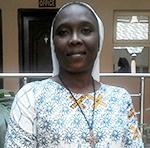
Edith Eneh is a member of the Sisters of Notre Dame de Namur, Province of Nigeria. Since her profession in 2011, she has worked as a bursar in various schools for eight years. Currently, she works in her province's development office.
Way back when I was in primary school and high school, I was always encouraged to work hard if I wanted to get good grades — in fact, if I wanted to succeed in life. I was taught that building a successful career, becoming wealthy, or being a great professional depended solely on hard work.
This belief stayed with me well into my adulthood, until I began to see a lot of poverty and hunger in a country where the leaders do little or nothing to help the economy. Does it mean that these people did not make much effort? No, it simply means that their efforts were not rewarded with success.
My perception began to change when I started working directly with the poor as a Sister of Notre Dame de Namur in Edo State and Abuja, Nigeria. The congregation has a charity arm that caters and provides food items for the very poor. The program provides food for poor families quarterly, sponsors poor schoolchildren and helps to offset hospital bills of some people.
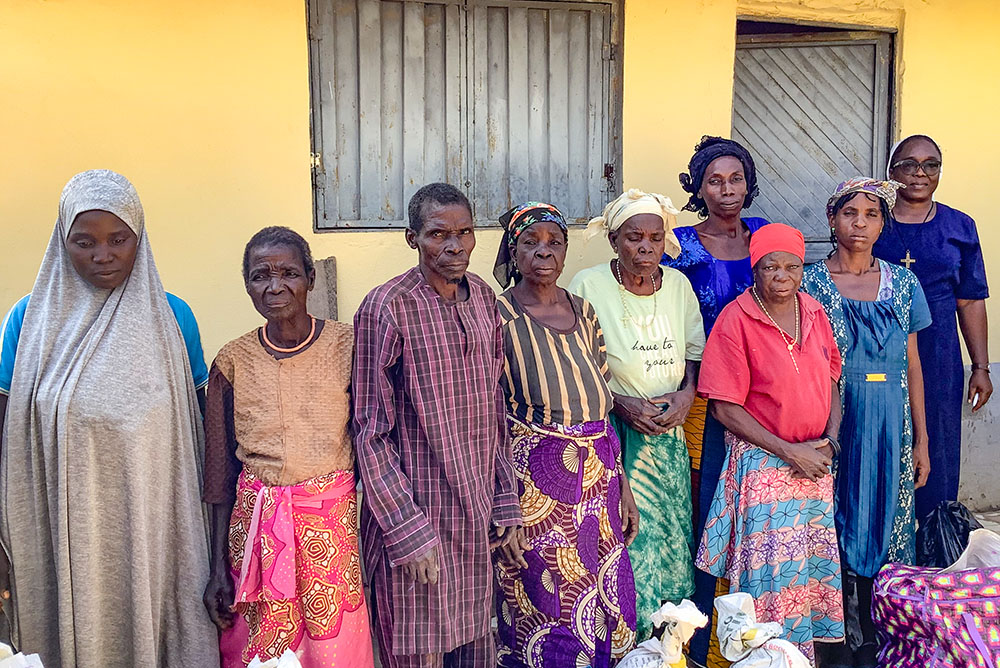
Sr. Edith Eneh with some of the beneficiaries of the survival packages by the Sisters of Notre Dame de Namur in Nigeria (Courtesy of Edith Eneh)
The development office of the province of the Sisters of Notre Dame de Namur in Nigeria, where I minister, organizes these sponsorship and feeding programs.
The children who are sponsored are picked from different homes as well as from the schools we own and manage for the diocese. Those who are not in our schools usually require visits to their homes, and I do that. During the course of these visits, I have come to realize that some people are so poor that having one full meal a day is a luxury.
The first time I visited them, I was disturbed by this question: "Does it mean that these people did not work hard to earn a decent living?" Interacting with them, I discovered that they worked as hard as every other successful person — sometimes even harder — but things are just not moving well for them. Many of them are peasant farmers who till the earth to provide food for the nation, yet have little or nothing to eat.
Probing further, I discovered that they are marginalized. The government does not assist them with good seeds, modern implements and fertilizers for planting. As a result, they work with the outdated methods of agriculture and remain poor.
This experience has really opened my eyes to the fact that success in life does not depend solely on hard work but also on receiving assistance from the right sources.
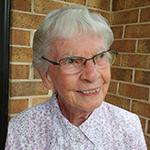
Kathleen Feeley, a School Sister of Notre Dame, served as president of the College of Notre Dame of Maryland (now Notre Dame of Maryland University), 1971-92. She has taught college, high school and elementary students. After her college presidency, she taught literature in India, Australia, China, Japan and Ghana. Feeley has a master's degree in English from Villanova University and a doctorate from Rutgers University. She now teaches at Notre Dame of Maryland's Renaissance Institute, which serves lifelong learners over age 50.
On Monday mornings, from 10 a.m. until noon, at the Franciscan Center in Baltimore, I meet women and men who live a very different life from mine. They join the food line to get a good meal.
I am holding the "clicker" that counts them, but I hold it at my side, unobtrusively. My real occupation is greeting and having short conversations with people to make this meeting a real "encounter" when I can. I usually see the same people: many old; most poorly dressed; mostly men, but some with younger women; many are handicapped. When the center opens at 10 a.m., a line has formed outside.
For the first half-hour, the line moves steadily, and all I can usually do is greet each person with a smile, and say something pleasant. But after that, people come more slowly, and I take the opportunity to start a brief conversation. Or one of them makes a comment to me, and we talk a little.
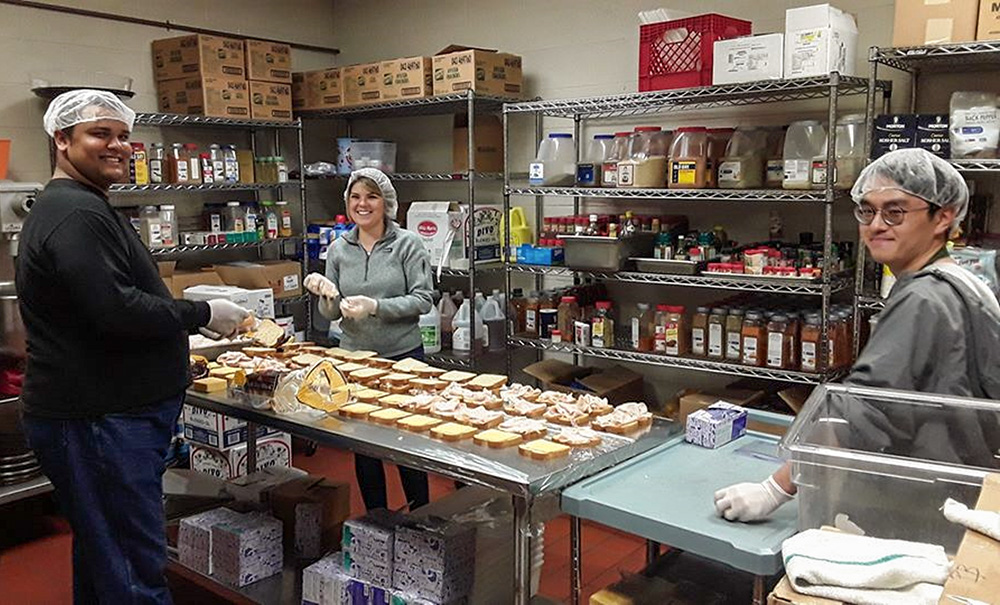
Workers prepare sandwiches at the Franciscan Center of Baltimore for those in need, in this spring 2020 photo. (CNS/Courtesy of Franciscan Center of Baltimore)
They tell me sad things. Some are homeless. Some show me an eviction notice, and I direct them to another part of the center that handles such problems. Some have a rosary around their neck.
Last Monday, one of the men was telling me a sad story, and he started to cry. I reached in my skirt pocket and handed him a Kleenex. He wiped his eyes and I said I would pray for him.
When all the people in the outside line have gathered on the ramp just inside the door, a staff member of the Franciscan Center who is in charge of the food distribution greets them. She gives them a warm welcome. Then she tells them that we will say a prayer, and anyone who does not want to pray should just be quiet and respect the others.
Sometimes she prays and sometimes she asks me to pray. I always create a spontaneous prayer.
At times, as someone in the line nears me, that person says something nice about how good the prayer was. I am moved by this. I can tell that the prayer struck home.
I had always thought that people who were raised in strong families could and would create a good life for themselves. I thought that people who did not have a good start in life could break out of the pattern and create their own future by hard work.
Listening to these stories has changed my mind. Some stories reveal that people start out well, and go downhill. Others seem to have started life in poverty and are still there. Opportunity is the missing element. Our society needs to create more opportunities for poor persons among us to raise their standard of living.
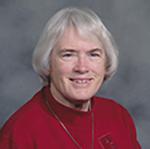
Patricia Wittberg is a Sister of Charity of Cincinnati. She holds a doctorate in sociology from the University of Chicago, and she taught the sociology of religion and religious organizations for 30 years at Fordham University and Indiana University (Indianapolis). She currently administers her congregation's Seton Enablement Fund, which gives low-interest loans to nonprofit organizations that help poor and marginalized people. She is also a research associate for the Center for Applied Research in the Apostolate, or CARA, at Georgetown University.
Three years ago, another local St. Vincent de Paul volunteer and I went together to answer a call from one of the worst apartment buildings in our parish. That is how I met my friend Marie.*
Marie is from West Africa. She came here after marrying an American soldier. He deserted her after a few years, leaving her homeless and alone.
For a time, she lived in a shelter. Since she was still legally married to an American citizen, a social worker got her a Section 8 voucher that paid her rent and utilities. She let another man live with her to pay other expenses, but he was also abusive. Eventually, the Metropolitan Housing Authority intervened and made him leave. That is when she called us.
Marie's background and life experience are so different from mine, but I think she and God are teaching me a lesson in being vulnerable to love, with the worry and pain this sometimes involves.
Marie is only semi-literate. During her homeless period, she let both her passport and her U.S. visa expire. She worked in a laundry when she first arrived in the U.S., but it later closed. She had no money, no bank account, and no idea of how to pay her utility bills online or even find the local grocery store.
Her plight was beyond our expertise or resources. But I couldn't leave her that day without seeking help somewhere, so I began calling people and organizations for advice. This is when God — and Marie — began to teach me some important lessons.
The first lesson has been to rely on the providence of God — to understand that I don't have to solve Marie's problems all by myself.
One of the first persons I contacted was, to my surprise, from Marie's tiny African country. He and his fellow immigrants are helping her straighten out her visa, and they found her a job to pay for the legal and medical services she needed to do so. (Getting a green card in the U.S. costs close to $1,000!) A co-worker found another African immigrant needing a roommate, allowing her to move to a better area just before her former building lost its Section 8 certification.
Advertisement
All is not perfect yet — Marie is still waiting for her visa reapplication paperwork to be approved and has much to learn about how to live in the U.S. But we both see the hand of God still working for her. And I am learning to remind myself to trust God and not worry so much when I can't fix things.
The second lesson is about being vulnerable to the pain of loving.
To love someone is to feel deep worry and pain when things go wrong for them. In the helping professions, we learn to distance ourselves from this pain for our mental health; after some 45 years of teaching, I was used to caring for students without getting too close. But I am retired now and perhaps needed to develop some new habits.
Marie's background and life experience are so different from mine, but I think she and God are teaching me a lesson in being vulnerable to love, with the worry and pain this sometimes involves.
I realize these two lessons seem to be contradictory: rely on the providence of God and not worry so much — yet be vulnerable to being "tamed" (as the fox says in The Little Prince) even if it causes pain. So perhaps a third lesson is to pray to God for help in living in the balance between the two!
*Marie's name has been changed, and details about her home country obscured, to protect her privacy.





